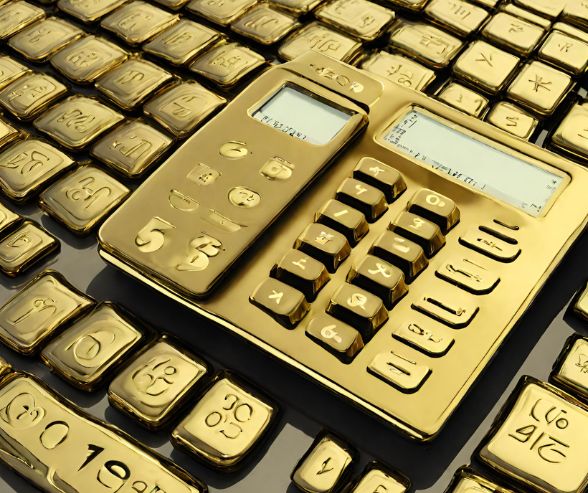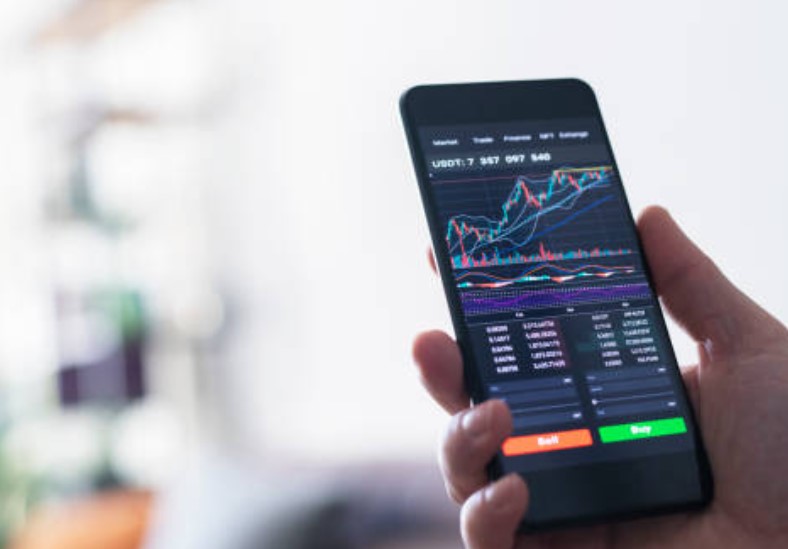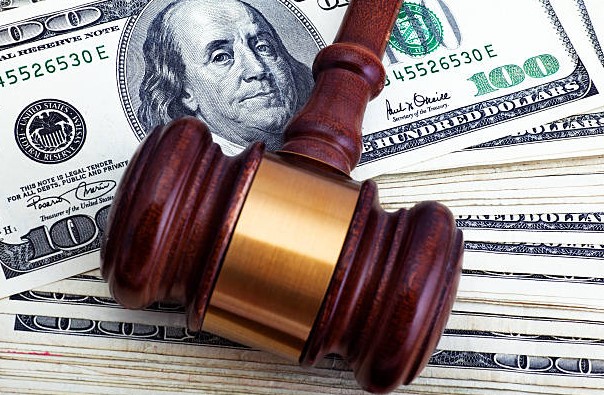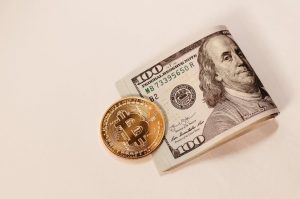
El Salvador is the first state in the world to make Bitcoin the legal currency and wants to help the country to gain momentum and independence.
For a change, it wasn’t Elon Musk who stirred up the cryptocurrency world in early June, but Nayib Bukele. The 40-year-old president of El Salvador announced that his country would be the first in the world to make Bitcoin legal tender. Few people would have suspected that the Salvadoran parliament under Bukele would pass a law a few days later in a fast-track procedure. If it comes into force in September, there are two official currencies: the US dollar and the Bitcoin.
El Salvador has been in debt for years and has not used its own currency since 2001. The IMF noted that the country had payment problems that would not be solved. The World Bank also refused to support the Bitcoin launch. But Bukele announces on Twitter: That cryptocurrency will improve people’s lives and ensure an economic upswing.
“El Salvador is not doing well economically, cannot set up its own currency and therefore uses Bitcoin,” says Philipp Sandner, head of the Blockchain Center at Frankfurt School of Finance. This would mean that the country in the Pacific would no longer be dependent on its own central bank or on the inflation of the US dollar. These are advantages that cannot be denied for El Salvador.
But what are the risks of cryptocurrency? Is Bitcoin suitable as a legal tender? There are a few questions to be answered.
Freedom
No central bank, no supervisory authority, but thousands of computers that store every transaction in the blockchain. The cryptocurrency’s decentralized registration system makes money more democratic, proponents argue. “For corrupt countries, Bitcoin has the advantage that politicians can not influence,” says Anita Posch, author and crypto expert. Digital currency is characterized by open access. In principle, anyone can purchase them on crypto marketplaces. A so-called wallet such as Metamask or Coinbase (check out Metamask vs Coinbase wallet comparison here), with which Bitcoins can be received, can be created anonymously and with just a few clicks. That could be an advantage for El Salvador, where 24 percent of the population over the age of 15 does not have a bank account. “Bitcoin can reach citizens who are not involved in the financial system,” Sandner says.
More than 20 percent of Salvadoran economic output also flows into the country through foreign remittances. When emigrants send money to their families, they often use service providers with high transfer fees. “With cryptocurrency, the transfer costs are almost zero,” says Sandner. In addition, according to Sandner, a “Bitcoin facility” is needed. This is a fund that allows people to cover with cryptocurrency. According to the WKO, El Salvador wants to set up digital wallets from a $120 million state fund and reward citizens with $30 in Bitcoin for initial registration.
The suitability for everyday use
In El Salvador, citizens will pay with Bitcoin through an app by exchanging QR codes. “Programming an app in the Bitcoin space is difficult because potentially thousands of transactions have to be processed per hour,” says Sandner. Bitcoin transactions can take a few minutes to days. Depending on how many transactions take place at the same time, they are verified at different speeds. How can you quickly pay for the coffee to go? The Lightning technology, which El Salvador also relies on, can help. The network can process payments in real time through a kind of the second layer on the Bitcoin blockchain.
The risk
Value stability, which is important for daily payment transactions, Bitcoin does not have. Enormous price fluctuations characterize the cryptocurrency, which can lose 20 percent of its value within a few hours. One possible reason for this is that individuals and “finfluencers”, financial influencers, strongly influence the crypto market. An investment by Tesla, for example, can cause the price to skyrocket. In addition, the blockchain sector is constantly evolving, news can lead to extreme price conditions.
Sander also says: “The biggest disadvantage is volatility.” Nevertheless, economist considers Bitcoin to be a secure means of payment. “Bitcoin is going through an upward trend, over longer periods of time the price rises.” The cryptocurrency is also resource-limited to 21 million bitcoins. Once the digital currency is mined, the shortage could cause the Bitcoin price, which is determined by supply and demand, to rise.
ALSO READ: Iran Allows International Trade Using Bitcoin
The environment
Bitcoins need to be mined. Mining, in which transactions are checked by thousands of computers, requires enormous computing power. According to a study by the Technical University of Munich, server farms cause annual emissions of about 22 megatons of carbon dioxide. This corresponds to the CO₂ footprint of a city like Hamburg. The Cambridge Centre for Alternative Finance at the University of Cambridge estimates in a study that only 39 percent of crypto mining is done with renewable energy sources. The sustainability problem will solve itself, says Sandner. “The percentage of renewable energy will increase.” Posch shares this opinion: “Miners are interested in cheap sources of electricity, i.e. wind, sun, and hydropower.”
The Twilight
Darknet, weapons, drugs: Cryptocurrency is often associated with criminal energy. Sandner considers this accusation to be outdated. “Today, the proportion of criminal transactions has shrunk significantly.” Clean transactions displace unclean ones because Bitcoin is increasingly gaining acceptance, says the economist. Every transaction is logged, and traces cannot be completely blurred, as with the cryptocurrency Monero, which is programmed differently. Only 0.34 percent of all crypto transactions in 2020 are said to have been illegal in nature, according to the US blockchain analysis company Chainalysis in its Crypto Crime Report 2021.
Security
But are the digital coins gone if you lose your secret “passphrase”? This can invalidate Sandner. “If Bitcoin is legal funding, there is a kind of online banking app and you can state that you have lost your password,” says the economist. It is different when technically savvy people do not store their Bitcoins in an app but in themselves. “If they then forget their password, no one can help you.” Hacker attacks cannot be ruled out either. “The risks are enormous, but the opportunities of cryptocurrency are also significant,” says the economist.
The future
What will soon be a reality in El Salvador will take a long time, if at all. Posch does not rule out the possibility that there is a coexistence of euros and Bitcoin in the EU. “I’m sure that will come at some point. However, probably less pronounced than in El Salvador, as we have a very well-functioning banking system,” says the author. Whether Bitcoin is suitable as a state currency cannot yet be judged today, says Sandner. The economist believes that Bitcoin will exist as a “new asset class” alongside the euro, i.e. as an investment in which to invest. One could imagine this as the ratio of gold to the euro: “Gold is in the safe and the euro in the purse. You don’t take a gold coin for shopping. That’s how I see it with Bitcoin,” says the economist.
Read More
While denying Wall Street Journal’s report that he intends to donate $45 million monthly to Trump’s campaign funds, Elon Musk says he supports the former US president in his reelection bid. The Tesla and SpaceX CEO praises Trump for his instinctual courage to continue his campaign despite the alleged assasination attempt on his life last July 13 in Pennsylvania.
 Elon Musks is instead promoting a non-partisan Super Pac Committee that he created and calls America Pac. Described as a non-partisan political action committee, Musk says it can be used to help both Republican and Democratic candidates in their respective political campaigns.
Elon Musks is instead promoting a non-partisan Super Pac Committee that he created and calls America Pac. Described as a non-partisan political action committee, Musk says it can be used to help both Republican and Democratic candidates in their respective political campaigns.




 While denying Wall Street Journal’s report that he intends to donate $45 million monthly to Trump’s campaign funds, Elon Musk says he supports the former US president in his reelection bid. The Tesla and SpaceX CEO praises
While denying Wall Street Journal’s report that he intends to donate $45 million monthly to Trump’s campaign funds, Elon Musk says he supports the former US president in his reelection bid. The Tesla and SpaceX CEO praises  Three business tax cuts could be renewed in time for the filing of the 2023 tax as Democratic lawmakers negotiate for the extension and increase of the Child Tax Credit. Approved under the American Rescue Plan Act of 2021, reports have it that lawmakers coming from both Republican and Democratic parties are nearing a deal amounting to $70 billion up to $80 billion that will see to the increase and extension of the child tax credits in exchange for the revival of the following Trump-era business tax breaks:
Three business tax cuts could be renewed in time for the filing of the 2023 tax as Democratic lawmakers negotiate for the extension and increase of the Child Tax Credit. Approved under the American Rescue Plan Act of 2021, reports have it that lawmakers coming from both Republican and Democratic parties are nearing a deal amounting to $70 billion up to $80 billion that will see to the increase and extension of the child tax credits in exchange for the revival of the following Trump-era business tax breaks: Full deduction of domestic research and development (R&D) costs in the same tax year instead of amortizing or spreading the amount invested, usually over a period of 5 years. Deducting the R&D costs incurred in full, from the gross income of the tax year will greatly reduce the taxable Net Income on which the annual tax due will be based.
Full deduction of domestic research and development (R&D) costs in the same tax year instead of amortizing or spreading the amount invested, usually over a period of 5 years. Deducting the R&D costs incurred in full, from the gross income of the tax year will greatly reduce the taxable Net Income on which the annual tax due will be based. Merck, the pharmaceutical firm that manufactures Januvia, a widely prescribed Type 2 diabetes drug, filed a lawsuit against the Dept. of Health and Human Services. Merck wants a Washington D.C. Court to block the “
Merck, the pharmaceutical firm that manufactures Januvia, a widely prescribed Type 2 diabetes drug, filed a lawsuit against the Dept. of Health and Human Services. Merck wants a Washington D.C. Court to block the “ However, HHS Sec. Xavier Becerra is unperturbed because he strongly believes the law is on their side. All complaints put forward by Merck are in relation to price negotiations that intend to reduce the health care costs of senior citizens and persons with disabilities (PWD) covered by the government’s Medicare Health Insurance program.
However, HHS Sec. Xavier Becerra is unperturbed because he strongly believes the law is on their side. All complaints put forward by Merck are in relation to price negotiations that intend to reduce the health care costs of senior citizens and persons with disabilities (PWD) covered by the government’s Medicare Health Insurance program.
 Political pressure and public opinion often enter the courtroom in high-stakes insurance litigation. When
Political pressure and public opinion often enter the courtroom in high-stakes insurance litigation. When 

 India’s modern economy pertains to the country’s transformation into a developing mixed mid-income
India’s modern economy pertains to the country’s transformation into a developing mixed mid-income  One of the critical detriments to India’s economic growth and continuing success, is its rapidly growing population. India today has the largest population, by having more than 1.42 billion people. The number overtook China’s 1.41 billion after the latter experienced its first population decline in 2022.
One of the critical detriments to India’s economic growth and continuing success, is its rapidly growing population. India today has the largest population, by having more than 1.42 billion people. The number overtook China’s 1.41 billion after the latter experienced its first population decline in 2022.

















 Investing in real estate can be an excellent way to create wealth. However, it is important to remember that not all investments are the same. If you invest in a new development, for example, there is less risk than if you purchase an existing property.
Investing in real estate can be an excellent way to create wealth. However, it is important to remember that not all investments are the same. If you invest in a new development, for example, there is less risk than if you purchase an existing property.